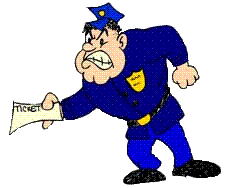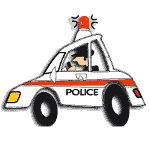Tips to Fight a DUI/DWI Charge in New Jersey
Author: admin // Category: DUI / DWI, Fighting a Traffic Ticket, Fines, Getting Pulled Over, How to Hire an Attorney, NJ Traffic Laws, Traffic Attorneys, Traffic Court, Violations
Driving under the Influence and Driving while Intoxicated are serious violations in the State of New Jersey, and even though should you never drive under the influence or while intoxicated because it puts your life and the lives of other people at risk; there may be a day when your judgment is impaired and you find yourself driving under the influence and consequently, being pulled over by the Police.
It is important to note that intoxication in the State of New Jersey isn’t just alcohol intoxication, it can also be other substances that are illegal or prescribed. It is important to be prepared if you are charged with a DUI and/or DWI, because you can fight these charges in NJ. When charged with a DUI or DWI in NJ, you need a good lawyer who is knowledgeable in the criminal justice system.
If you are stopped by a Police Officer who suspects that you are under the influence in New Jersey, you will be required to carry out some road side tests. You may also be asked incriminating questions with no Miranda advisement of rights, and with no right to talk to an attorney. If the Police Officer thinks that you are under the influence, you will be arrested for a DUI and/or DWI in NJ.
Once you are arrested, you will be videoed at the police station, while you are questioned further. After you have been arrested, you will also be asked to undergo breath and blood tests, usually at the police station. A knowledgeable DUI/DWI defense attorney in New Jersey knows that sometimes the breathalyzers used are incorrect or unreliable, and that some of the Police Officers who use these devices are not familiar with the correct procedures. If the breathalyzer shows that you are over .08%, if there is a blood sample rejected, or you refuse to be tested, then you will be reported and the Police will remove your license and provide you with a Notice of Suspension.
When you choose an attorney to deal with your case, you need to choose someone who is properly educated, skilled and committed to fight your DUI and/or DWI charge in NJ. Going to court can be stressful, and you need to know that the lawyer defending you is experienced at defending DUI and DWI charges. Your lawyer needs to know when to stand up on your behalf, and when to negotiate.
Additionally, learn your case and take the time to fully understand your actual charges. When you go to court with the proper knowledge of the court procedures and the law, it will make you more prepared and the court will take you more seriously. It will also prepare you for the possible consequences, and how the outcome may affect you. If you invest the time and effort to study your legal needs, then it will help with any future proceedings. Conducting a Google search will provide resources that can give you pertinent knowledge pertaining to your case.
Additionally, make sure you dress appropriately for court by wearing business attire, i.e. a suit. Business attire portrays professionalism and reflects to the court that you are taking the charges seriously. Do not appear in court wearing jeans and a t-shirt, as this shows that you are not taking your DUI/DWI case seriously and that you are unprofessional.
Don’t be foolish and believe that you cannot defend against DUI and/or DWI charges that you may receive. Fighting a DUI/DWI in NJ will usually enable you to receive a reduction of charges and/or fines. The Judge will see that you have invested time and effort in your case and will probably look at your case with a little leniency, as compared to someone that doesn’t defend their case properly or take their case seriously.



